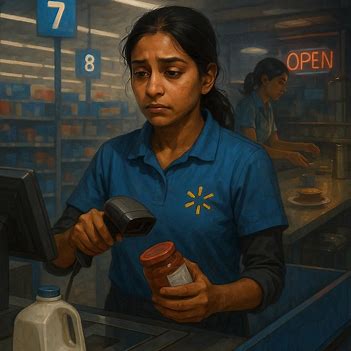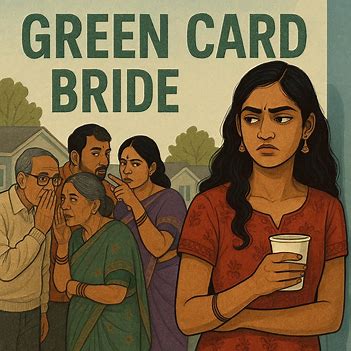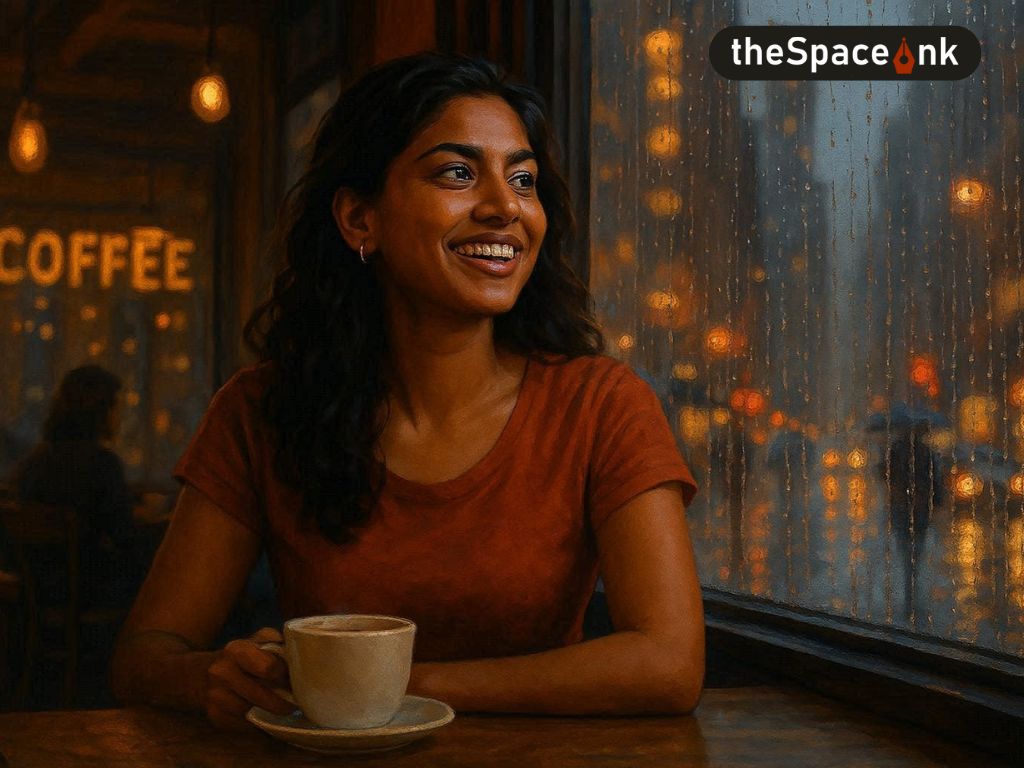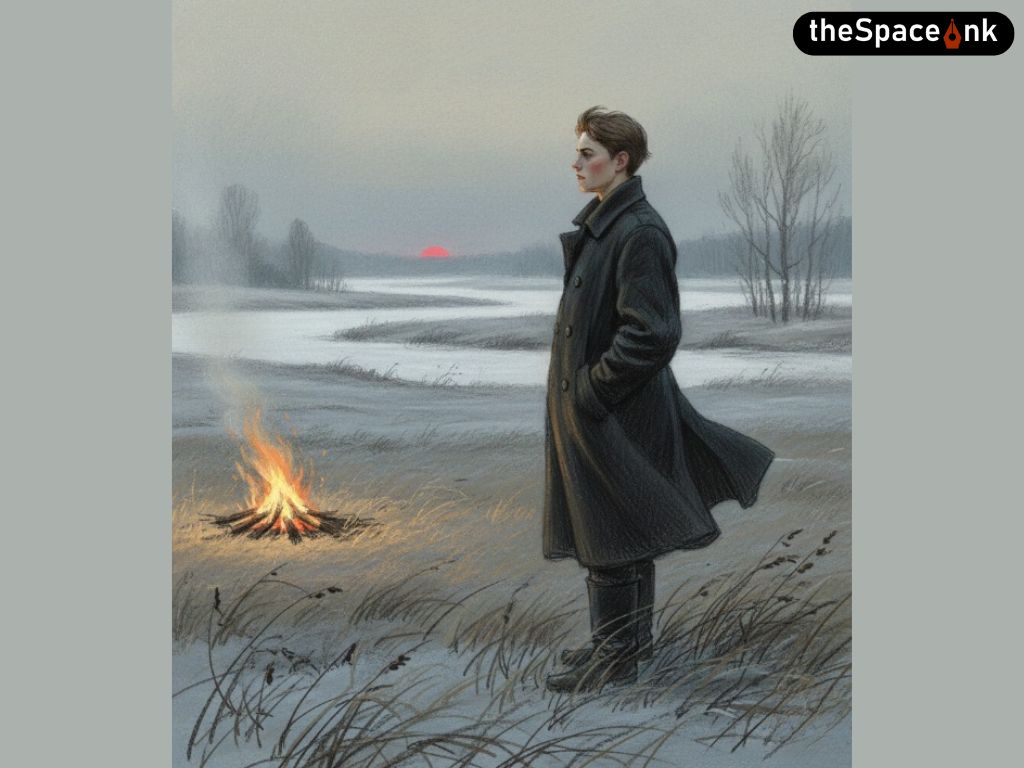(Short Story)
Last winter, among the cluster of silk sarees and deafening music, Aunt Veda stood apart. I suppose I did too in a way. But while my introverted self was crouched over a book, ignoring glances and stares on a far off velvet sofa, she was the center of attention. Her sharp features had glistened with sweat, as she matched beats with my cousins, her silver sequined satin saree tied around and tugged into her waist.
As she cajoled my new cousin-in-law to the dance floor, she quickly grabbed a glass of whiskey even as took another bite from what was perhaps her third plate of the night. Or so grandaunt Kalindi whispered. I remember trying to touch her feet—a custom ingrained into my by Ma—as she was introduced to me last morning. To my surprise, she had hugged me instead. (Short Story)
As I thought back to that somewhat awkward encounter, I made brief eye contact with her almond-shaped light brown eyes that made me realize I’d been caught staring. Embarrassed, I quickly turned elsewhere only to be met with Uncle Parth’s large strides directed towards me, no doubt to boast of his son’s recent admission to law college for the umpteenth time. I quickly escaped to evade any attempts to socialize. (Short Story)
Walking along the now deserted hallway, most guests busy with the hullabaloo of the wedding, landed me near the patio, blissfully empty and quiet, barring the few staff cleaning up the mess left over from the cocktail party earlier in the evening. I lent them a polite smile as I borrowed a stool and made myself comfortable in a spot beside the fountain. I opened my book with a satisfied sigh. Reading wasn’t on the cards however, as I felt a light tap on my shoulder. Standing there with mischievous eyes and an amused smirk was Aunt Veda. (Short Story)

I stuttered a bit at her sudden arrival but she just dropped onto the adjoining stool. We settled into a comfortable silence, broken by Aunt Veda’s quiet reveal—”I was like you once”. (Short Story)
“I highly doubt that.” I had snorted out before I could stop myself.
I froze up immediately but Aunt Veda let out a laugh. Not the dainty sweet giggle but a loud boisterous laugh.
“Don’t believe me? I’ll tell you! Just you listen!” The words rolled off her tongue, slightly slurred. (Short Story)
“America wasn’t the only thing foreign to me. The life, the rules, the family, and the man I was married to. All of it was strange, unwelcoming, unrelenting. Adjustment issues is how my mother termed my woes.”
A typical Bong upbringing is what she had called her childhood. Raised in a well off family, she was able to afford the privilege of dreams, but was bound like most women in the 90s by the shackles of the strict societal standards. Encouraged to excel academically but reminded that marriage was the ultimate destination, taught to have opinions but forbidden to express them when it mattered. At nineteen, her world was both seemingly infinite and impossibly narrow. (Short Story)
The marriage had been arranged, her mother had boasted widely about her daughter clinching such a “good match”—an NRI man from a family of similar status, his parents’ only child who was eager to see her finish her degree in the States. The promise of life abroad was enough to make her the primary subject of envy for months after the wedding. (Short Story)
Early signs were dismissed as they always are. “America wasn’t the only thing foreign to me. The life, the rules, the family, and the man I was married to. All of it was strange, unwelcoming, unrelenting. Adjustment issues is how my mother termed my woes.” Aunt Veda laughed mockingly. Questioning her choice in clothes dismissing her study hours as ‘lazing around’, and nitpicking her ability with chores. (Short Story)
“The day he hit her first had been the day she had first rebelled. Having refused her mother-in-law’s casual order to polish her husband’s shoes due to her allergies to harsh chemicals.”
The dishes were never clean enough, no room without specks of dust, the cooking nearly tolerable. Funds requested for books were termed frivolous and spendthrift. Her in-laws, who had been in the pursuit of a ‘daughter’ during the courtship, had become enablers who blamed her parents for ‘pampering’ her into being ‘useless’. All harsh criticisms only ever whispered, disguised as ‘corrections’, eating away at her self esteem. (Short Story)
When she had suffered a miscarriage—brought on, she was certain, by the constant stress and fear—they had comforted her, with kind words spoken in sweet voices. Like one would calm a dog who had lost her litter but needed to get back to her job of guarding the house well, for her ‘family’ had never learned to see her as fully human. “I was young, my mother-in-law had said, there would be others. It was better that way for I could never be a good mother without becoming a proper wife.” (Short Story)

“It felt like I was being slowly wrapped in cotton,” she explained, “it was so soft at first, so comforting in that world of unknown, that I wasn’t able to realize I was suffocating until I couldn’t breathe.” (Short Story)
The day he hit her first had been the day she had first rebelled. Having refused her mother-in-law’s casual order to polish her husband’s shoes due to her allergies to harsh chemicals. “The slap wasn’t for refusing he had said, it was for talking back when my mother-in-law disregarded allergies as a pathetic attempt to forgo work. She had smiled when it happened.” (Short Story)
“Women survive by becoming complicit, and need their victims to do the same in turn. My pain had validated her choices, made her feel that her suffering was meaningful, meant to mold one into the perfect wife and daughter-in-law.”
Pity is all Aunt Veda had for the woman who was a witness and complicit in her abuse though. Pity for the woman who had been so thoroughly erased that she eagerly participated in erasing others. (Short Story)
“It is a cycle,” Veda said, her voice bitter with recognition, “one so perfect, so complete that you don’t realize you stand on the precipice where your tormentors once stood. Women survive by becoming complicit, and need their victims to do the same in turn. My pain had validated her choices, made her feel that her suffering was meaningful, meant to mold one into the perfect wife and daughter-in-law. Every time she watched me polish those shoes since, my hands red with rashes, she could tell herself that this was just how things were, how they had always been.” (Short Story)

Aunt Veda had called her father that evening, after her husband had left for office. She could hear the joy in his voice as he answered, could picture him in their old house in Kolkata, probably reading the newspaper in his favorite chair. (Short Story)
But when he asked how she was, when she heard the genuine happiness he felt at hearing from his daughter living the American dream, she couldn’t bear to shatter his world. “I lied. I lied then and all the times after. Not just to Ma and Baba but to myself. That no relationship was perfect. That things would get better. After all, it was my home now. And no one just leaves home because things got tough.” (Short Story)
Also Read: Let’s Reclaim the World
It had been a mundane day when it all ended. Her husband and in-laws having gone to a family wedding, she had been left alone in the large fenced house. The neighborhood was affluent, a community built on status and privilege. Her period had started unexpectedly. In desperate need of sanitary pads, she had tied a sweater around her waist to hide any potential stains and tried to steel herself to walk to the pharmacy but could go as far as the driveway before freezing, the panic and shame engulfing her whole. (Short Story)
It was then that John Wright noticed her. A new neighbor, his housewarming invite had been politely but swiftly rejected by her in-laws as they muttered about “ghetto people’s desperate attempt to fit in”. Aunt Veda revealed with a laugh that she had remembered then that John had a wife. (Short Story)

Aunt Veda had said she remains grateful to Lisa, not just for the pads, but for showing her genuine kindness that she had been long deprived of. Lisa and her had talked for an hour or two on the large leather sofa in the house’s living room before being interrupted by her husband and in-laws. Lisa had quickly left, following their superficial attempts at small talk reeked with racist undercurrents. From her mother-in-law wanting tips on how she managed her ‘wild hair’ to her father-in-law crudely joking about Wright’s utility bills being high due to not being able to see each other in the rooms without the lights on. (Short Story)
The moment had come in the next few moments. As her ‘family’ had begun berating her for inviting ‘strangers’ into ‘their’ home, the cold truth had washed upon her. It had always been, was, and would remain ‘their’ home. Never hers, for she was merely that kept the home appealing but it didn’t belong to her and never would. She felt her brain lose the fog that had plagued it for two years, as she realized she didn’t want to belong to the house either. (Short Story)
“As her ‘family’ had begun berating her for inviting ‘strangers’ into ‘their’ home, the cold truth had washed upon her. It had always been, was, and would remain ‘their’ home.”
She had packed her belongings that same night, overwhelmed with relief. Ignoring her husband’s threats, in-laws’ mockery and emotional manipulation, and her parent’s constant calls, she had walked out with only what she had come. (Short Story)
Real life however only begins where fairy tales end.
“Disappointment is what Ma called me. Baba stopped speaking to me for months after.”
The Indian friends she had made in America—her only social circle—had ostracized her. A Green Card bride is how they had termed her. “A sham they called my marriage. They weren’t wrong.” She laughed and for the first time that night I had laughed alongside her. The absurdity and irony hit hard. (Short Story)
“She lives in New York now, far off the suburbs of Orange County that once trapped her. As the sound of wedding drums reached new heights, I had realized the pheras had commenced.”
She began working two jobs, a cashier at the local Walmart during the day, waitress at a cheap diner at night. The bills kept piling up and so did her tuition. Her home was in a shared studio apartment that was smaller than her former walk-in closet. She remained tired still, as much if not more than when she was married. Sometimes she had wailed due to frustration and stress, the loneliness and desolation threatening to consume her whole. Her roommates remained apathetic. But she had survived, and slowly, survival had given way to living. (Short Story)
She had spoken of small acts that had slowly grown her trust back in the people around her. Her professor who had recommended her for a scholarship, her regular customer who left large tips, her supervisor who handed her extra shifts to cover bills. (Short Story)

“I work in marketing. Isn’t very exciting but the pay’s enough for me. Vacations, food, and Netflix, that’s everything I need.” She lives in New York now, far off the suburbs of Orange County that once trapped her. As the sound of wedding drums reached new heights, I had realized the pheras had commenced. (Short Story)
But all I could think about was that woman in front of me. She had smiled, her cheeks indented with dimples, as she tugged at my choli and got me to feet. “You don’t want to miss this part. This wedding has Bollywood level production value. I’m sure my nephew’s going to pull off a grand romantic gesture like the ones people upload to YouTube. (Short Story)
“Love is a choice” she had explained “it is not something that can happen to you or be decided for me. When it stops being the right choice, you must make a different one.”
“Are you happy?” I had asked her as we walked back towards the noise. I had needed to know that it had been worth it.
“I’m free,” she had said quietly, “it’s not the same thing as being happy, but with I can be if I want to be. I can shout, I can cry, I can laugh, I can sigh. I can do whatever I want to do. And isn’t that great?” It is.
“Love is scary.” I remember muttering after. (Short Story)
“Falling in love is. Being isn’t. I have been in love. Twice. First was a Frenchman I met on my third trip to Nice. We parted over food choices. God forbid I let go of my spices. The second was a coworker. Unfortunately he was too distracting.” She had winked. (Short Story)

“Love is a choice” she had explained “it is not something that can happen to you or be decided for me. When it stops being the right choice, you must make a different one.”
I was nineteen then. The same age as Aunt Veda when she had been married. We were two women, born decades apart. Our constraints weren’t the same yet her story spoke to me in a way that was both uncomfortable and enlightening. (Short Story)
Also Read: Spring Blossoms in the City
As we had finally headed back into the Grand Hall, where my cousin was down on one knee giving an impassioned speech, I had watched Aunt Veda slip back effortlessly into her fun-loving persona. In the final hours of the celebration, she had graced the aunties who had taunted her for decades behind closed doors, asking if they had eaten well, she was warm with the uncles who had written her off as a cautionary tale. Despite her choices always weighing on her back, she remained present and joyful. Joy that wasn’t forceful and fake but genuine and hard-earned. (Short Story)
In the end, Aunt Veda’s greatest rebellion was not one at all. It was a defiance of the societal laws that any woman who dared do as she pleased was a rebel. She did fit in, just not with the people society deemed fit for her but with people she chose. In between the crowd and the noise, she had chosen to listen to the only voice that mattered, her own. (Short Story)
Image Courtesy: AI
Ishani is currently a student at Jogamaya Devi College. Having always had a passion for writing, she wishes to pursue it as a career in the future. Her interest in writing stems from countless hours of reading books of all genres, with a particular appeal to high fantasy and thrillers.







